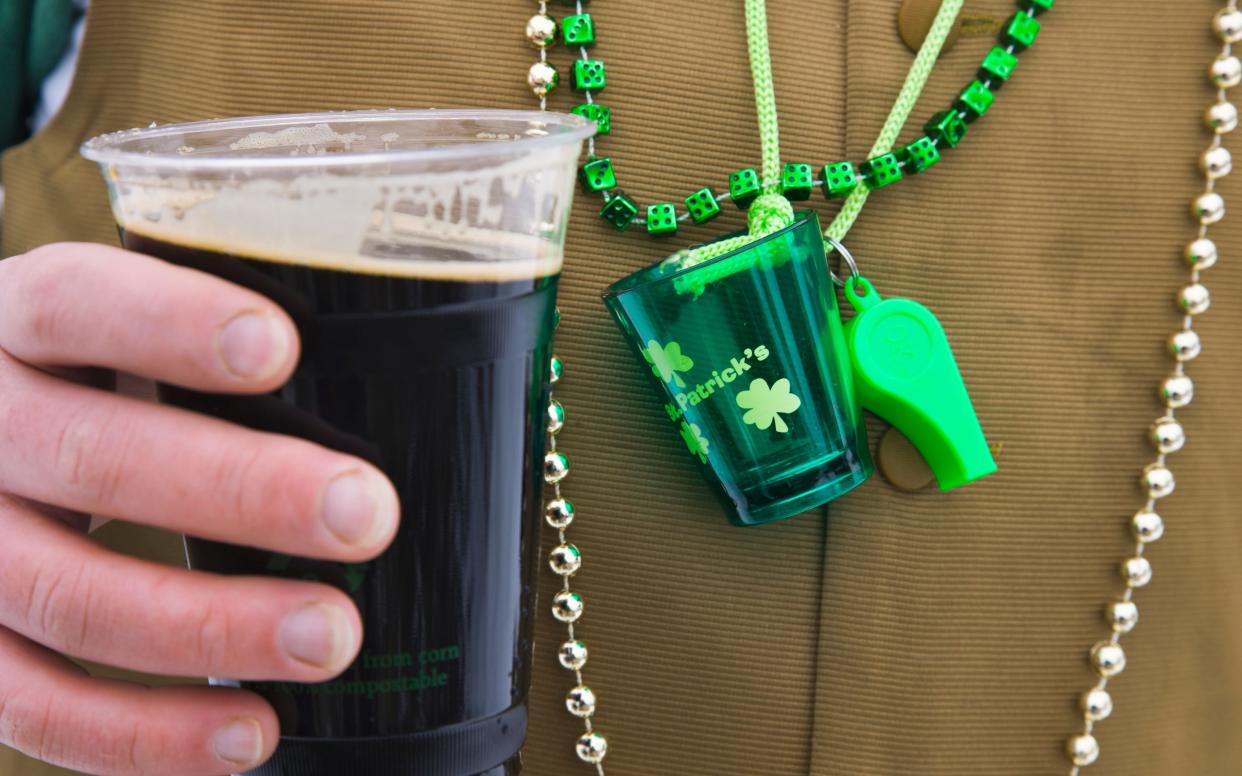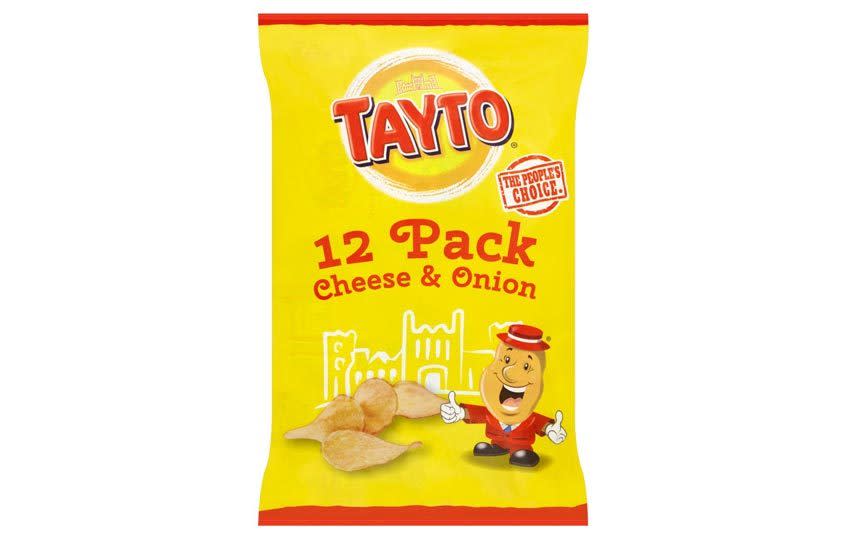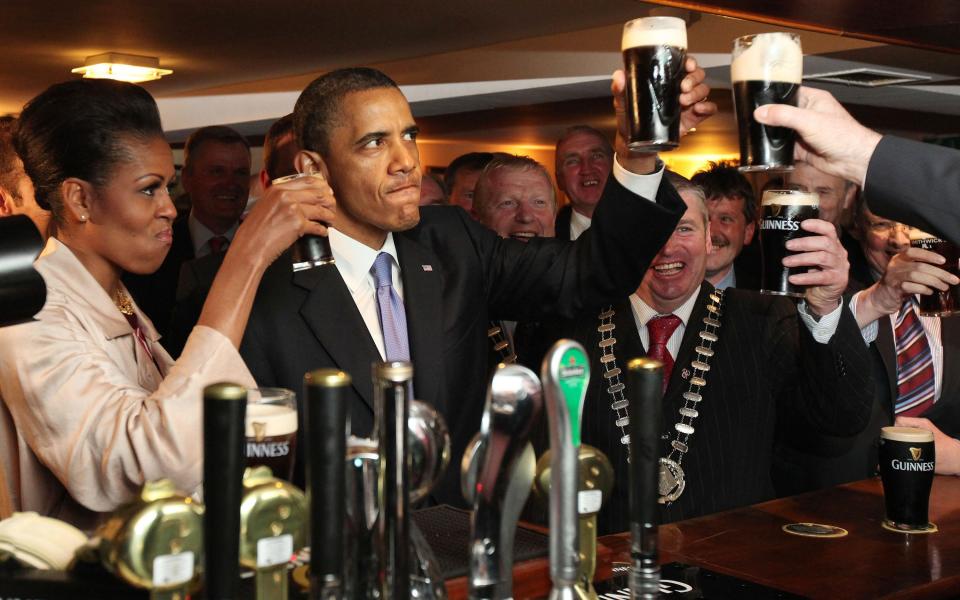How to have a non-clichéd St. Patrick's Day

We in Ireland have a complicated relationship with St. Patrick's Day.
A small nation with a historical tendency towards low self-esteem, we crave, more than anything, to be popular. Thus, on March 17 each year, our cockles are collectively warmed as global landmarks become bathed in green spotlights, random American rivers are dyed toxic emerald and merrily-blathered foreigners spend the night mispronouncing 'sláinte' (a word no actual Irish person has uttered since the late 1600s).
On the other hand, we are teeth-grindingly aware that St. Patrick's Day is less a celebration of Irishness than of non-Irish people's idea of Irishness. It is, not to put too fine a point on it, a global cringe-fest that has arguably entrenched the damaging stereotype of the boozy, twinkle-toed Celt.
There is also the howling irony that, for anyone over the age of 30, St Patrick's Day as rambunctiously observed around the world represents the precise opposite of the understated feast day of our childhoods.
In the grey, dreary Seventies and Eighties, Paddy's Day typically involved a trip to mass (cold, tedious), wearing a cabbage-sized clump of shamrock on your lapel (weird) and visiting batty elderly relatives (cold, tedious, liable to leave you smelling of mothballs).
The only liquid consumed in gratuitous quantities was tea – occasionally, but not always, accompanied by a digestive biscuit (if your family had notions, a packet of Viscounts might be produced). Forget green beer or fat New York cops parading down Fifth Avenue – so far as most Irish people were concerned, Patrick was Patron Saint of being bored out of your cerebrum.
In the spirit of the rant you've just been subjected to, then, are five ways to enjoy an authentically Irish St. Patrick's Day.
(Note that in every instance your experience will be enhanced with a side-serving of cheese and onion flavour Tayto.)

1: Drink Something Irish (But Not Guinness)
Contrary to perceptions overseas, Guinness drinkers do not constitute an overwhelming majority in Ireland. Nor are we universally chuffed that a random heavy beer, initially popular among London porters, has been elevated to national symbol. Across much of the country the iconic stout is, in fact, regarded as synonymous with Dublin rather than Ireland.
In Cork, for instance, rival concoctions Beamish and Murphy's reign unchallenged: an English colleague who once ordered a Guinness in deepest east Cork was practically chased onto the street with pitchforks (an actual pitchfork may have featured – it was late and recollections are fuzzy).

Nor should those craving credible Irish beer confine themselves to something black and porridge-like: there is an ongoing boom in craft brews, with the usual wacky names, while Bulmers Cider (required by law to be consumed in a pint glass with ice) has a long-standing fan base (in the UK you know it as Magners).
However, for an invigorating sup of the 'real' Ireland, better to avoid alcohol altogether. The country has a unique micro-genre of regional soft drinks. In the deep south, there is the divine Tanora, a tangerine-derived soda that tastes, in the best way possible, like orangeade crossed with unrefined diesel (we heartily recommend). Up north in Donegal, natives swear by McDaid's Football Special, reputed to deliver the fastest sugar hit this side of intravenous injection. Most anywhere else you can sample Club Orange – think Fanta only less corporate and Day-Glo.
2: Eat Something Irish (But Not Stew)
The first this writer heard of the alleged 'Irish' dishes of boxty and colcannon was when waylaid by American tourists seeking dinner recommendations in Temple Bar. Leave such cliched stodge to the misty-eyed diaspora – to eat like a proper Irish person you need to visit the main street (never, ever referred to as the 'high street') of any small town just after the pubs have closed. Here, the overpowering whiff of chips and garlic dip will inevitably lead you to one of Ireland's many indigenous fast-food franchises.
There is Supermac's (imagine if Ronald McDonald was a character from John B Keane's The Field), Abrakebabra (a fantastical never-land populated by kebabs, overflowing tubs of chips and blinding white Formica) and, for the connoisseur, chrome-plated diner chain Eddie Rockets, an attempt (with arguably middling results) to transpose the experience of being a teenager in Fifties America to modern-day Mullingar.
3: Listen to Irish Music (But Not Clannad)
That woozy, willowy traditional music so synonymous with Ireland? Yes, we hate it too. And while willing to go along with the idea of U2 as the world's biggest band, the grisly reality of a universe in which Bono pops up unannounced in our iTunes terrifies us as much as everyone else.
No, for a true glimpse into the soul of this ancient Celtic nation, huddled storm-wracked and stony-soiled at the edge of Europe, you are directed towards 'banging' dance anthem Maniac 2000 by DJ Mark McCabe, number one in perpetuity here through the early 21st century..
How to convey the delicate sensibilities of Maniac 2000 to someone who has never passed out cold in an Athlone disco? We could tell you it resembles a mash-up of early Prodigy and random Father Ted characters having a fight in a car park – and thus is representative of the vast, underappreciated genre of Irish techno. Or you could just look it up on YouTube – with the proviso that we take no responsibility for the existential trauma you will likely suffer as a result.
4: Sample Irish Sport (But Not Rugby)
Schlepping through an Irish airport, or visiting a pub in Temple Bar, Dublin's barf-lacquered tourist hotspot, one might mistakenly conclude that Ireland is rugby crazy, such is the orgy of paraphernalia relating to the game. Actually, rugby has remarkably patchy roots, being chiefly popular among the Dublin intelligentsia and in the dystopian bowels of inner-city Limerick.
Elsewhere, though, the Gaelic sports of hurling and football are where the country's true passions lie. As it happens, the All-Ireland Club Championships finals are traditionally held in Croke Park, Dublin on St Patrick's Day. Not to be confused with the more popular Intercounty hurling and football Championships, the club finals tend to feature small parish teams, often with bizarre and unpronounceable names – e.g. Buffer's Alley of Wexford, Fighting Cocks of Carlow, Knockavilla-Donaskeigh Kickhams of Tipperary (none of these are made up).
Irish people take immense pride in these sports and are confused and hurt when foreigners assert they merely boil down to red-faced men thumping one another (with sticks in the case of hurling). You see random violence, we see ancient skill and artistry.
Can we at least agree it's more engaging than Jose Mourinho throwing another hissy-fit?
5: Watch Irish telly (But Not Father Ted)
Father Ted provided an uncanny snapshot of rural and small town Ireland. But it's on all the bloody time on E4 and, at fifteenth watching, even Bishop Brennan being kicked up the behind loses its charm.
For a grittier insight into modern Irish life, may we suggest alternative viewing in the form of crime drama Love/Hate. Though it sank with a whimper when screened on Channel 5 a few years back, in Ireland Love/Hate was a full blown phenomenon. The grisly death at the end of the final series of gangster-in-chief Nidge, for instance, was front page news – literally the only thing anyone was talking about the next morning.
While the limited budget shows at times, Love/Hate is compellingly hard-hitting in its evocation of Ireland's spiralling drug-wars. Admittedly, afterwards, you'll never, ever want to set foot in West Dublin – although considering how dysfunctional our public transport is, it isn't as if you'll have time for a visit on your next weekend away here anyway.
How Irish are you?
Take the test to find out ...


